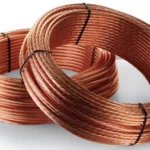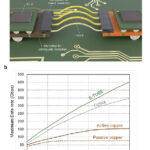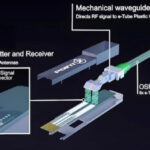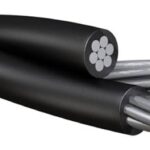Upgrading your car's audio system is about more than just a new head unit or speakers. The quality of your cables is just as important. Think of them as the blood vessels of your audio system; they need to be the right size and type to deliver a clean, powerful signal.
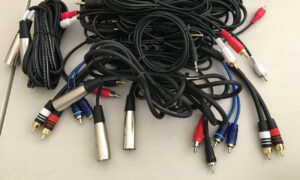
Car Audio Cables
This guide will walk you through the three most important types of car audio cables—power, speaker, and RCA—and show you how to choose the right ones to get the best possible sound quality.
1. Power and Ground Cables: The Foundation of Your System
The most crucial cables in your car audio system are the power and ground wires. They deliver the massive amount of current your amplifier needs to function.
- How to Choose: The key here is gauge. The lower the gauge number, the thicker the cable, and the more current it can handle. Your amplifier's manual will recommend a specific gauge based on its power output (wattage) and the length of the cable run from the battery.
- Don't Skimp: Using a power wire that's too thin can cause a voltage drop, forcing your amp to work harder and leading to distortion and overheating. It's always safer to use a thicker gauge than the minimum recommendation. For example, if your amp manual recommends 8-gauge wire, it's smart to use a 4-gauge wire instead.
- The Ground Wire: Just as important as the power cable is the ground wire. It needs to be the same gauge and length as the power wire to ensure a clean return path for the current. Connect it securely to a clean metal surface on your car's chassis.
2. RCA Interconnects: Carrying the Signal
RCA cables carry the low-level audio signal from your head unit to your amplifier. They don't handle a lot of power, but their quality is crucial for a clean, noise-free signal.
- How to Choose: Look for RCA cables that are well-shielded. This shielding protects the delicate audio signal from electrical interference, which can cause buzzing or hissing sounds. Cheap RCA cables often lack proper shielding, which is a major source of poor sound quality.
- Avoid the Noise: To further prevent noise, run your RCA cables down one side of the car and your power cables down the opposite side.
3. Speaker Wires: Delivering Sound to Your Speakers
Speaker wires carry the amplified signal from your amplifier to your speakers. They are the final link in the audio chain.
- How to Choose: The right gauge for your speaker wires depends on the speaker's impedance and the length of the wire run. For most car audio systems, a 16-gauge or 14-gauge speaker wire is sufficient.
- Don't Overlook This: While the difference might not be as dramatic as with power cables, using a thicker wire can help maintain sound quality over longer distances by reducing signal loss.
Final Pro-Tips
- Buy a Kit: If you’re a beginner, consider buying a complete car audio wiring kit. These kits include all the necessary wires, fuses, and terminals, ensuring everything is the correct gauge and type for your system.
- Fuse Protection: Always install a fuse on your main power cable within 18 inches of the battery. This protects your car's electrical system from a short circuit.
- Crimp, Don't Solder: For the most reliable connections, use a proper crimping tool and connectors instead of soldering. Soldered connections can become brittle from vibration over time.
By paying attention to these key cables, you'll be well on your way to building a car audio system that not only sounds great but is also safe and reliable.

